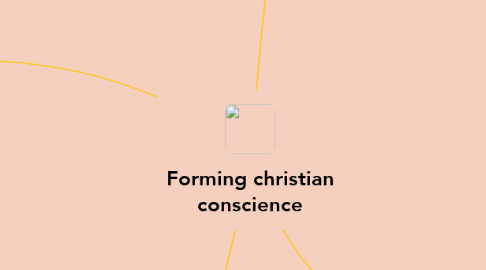Forming christian conscience
by Patricia Kyle Garcia

1. Guidelines
1.1. Anything goes!
1.2. No criticism or flaming allowed
1.3. The Wilder The Better
1.4. Quantity is Quality
1.5. Set a Time Limit
2. Law and Justice: Right to Self-Defense · Death Penalty
2.1. 2261: Scripture specified the prohibition contained in the fifth commandment: “Do not slay the innocent and the righteous.” The deliberate murder of an innocent person is gravely contrary to the dignity of the human person, to the golden rule, and to the holiness of the Creator.
2.2. 2263: The legitimate defense of persons and societies is not an exception to the murder of the innocent that constitutes intentional killing. “The act of self-defense can have a double effect
2.3. 2264: Love toward oneself remains a fundamental principle of morality.
2.4. 2266: The efforts of the state to curb the spread of behavior harmful to people’s rights and to the basic rules of civil society correspond to the requirement of safeguarding the common good.
2.5. 2267: Assuming that the guilty party’s identity and responsibility have been fully determined, the traditional teaching of the Church does not exclude recourse to the death penalty, if this is the only possible way of effectively defending human lives against the unjust aggressor.
3. Euthanasia
3.1. 2276: Those whose lives are diminished or weakened deserve special respect. Sick or handicapped persons should be helped to lead lives as normal as possible.
3.2. 2277: Whatever its motives and means, direct euthanasia consists in putting an end to the lives of handicapped, sick, or dying persons. It is morally unacceptable.
3.3. 2278: Discontinuing medical procedures that are burdensome, dangerous, extraordinary, or disproportionate to the expected outcome can be legitimate; it is the refusal of ‘over-zealous’ treatment.
3.4. 2324: Intentional euthanasia, whatever its forms or motives, is murder. It is gravely contrary to the dignity of the human person and to the respect due to the living God, his Creator.
4. Abortion
4.1. Abortion is one of the most important topics to consider – Catholic teaching originates in the very definition of life and the value of life throughout our time on Earth. These arguments address the “slippery slope” that may open the door to the devaluing of life at other stages.
4.2. 2258: “Human life is sacred because from its beginning it involves the creative action of God and it remains forever in a special relationship with the Creator, who is its sole end. God alone is the Lord of life from its beginning until its end.
4.3. 2268: The fifth commandment forbids direct and intentional killing as gravely sinful.
4.4. 2270: Human life must be respected and protected absolutely from the moment of conception.
4.5. 2273: The inalienable right to life of every innocent human individual is a constitutive element of a civil society and its legislation
5. Marriage and Family: The Marital Act · Contraception
5.1. 1652: By its very nature the institution of marriage and married love is ordered to the procreation and education of the offspring, and it is in them that it finds its crowning glory.
5.2. 2274: Since it must be treated from conception as a person, the embryo must be defended in its integrity, cared for, and healed, as far as possible, like any other human being.
5.3. 2361: Sexuality, by means of which man and woman give themselves to one another through the acts that are proper and exclusive to spouses, is not something simply biological, but concerns the innermost being of the human person as such.
5.4. 2366: Fecundity is a gift, an end of marriage, for conjugal love tends to be fruitful.
5.5. 2369: “By safeguarding both these essential aspects, the unitive and the procreative, the conjugal act preserves in its fullness the sense of true mutual love….”
5.6. 2370: Periodic continence, that is, the methods of birth regulation based on self-observation and the use of infertile periods, is in conformity with objective criteria of morality.


